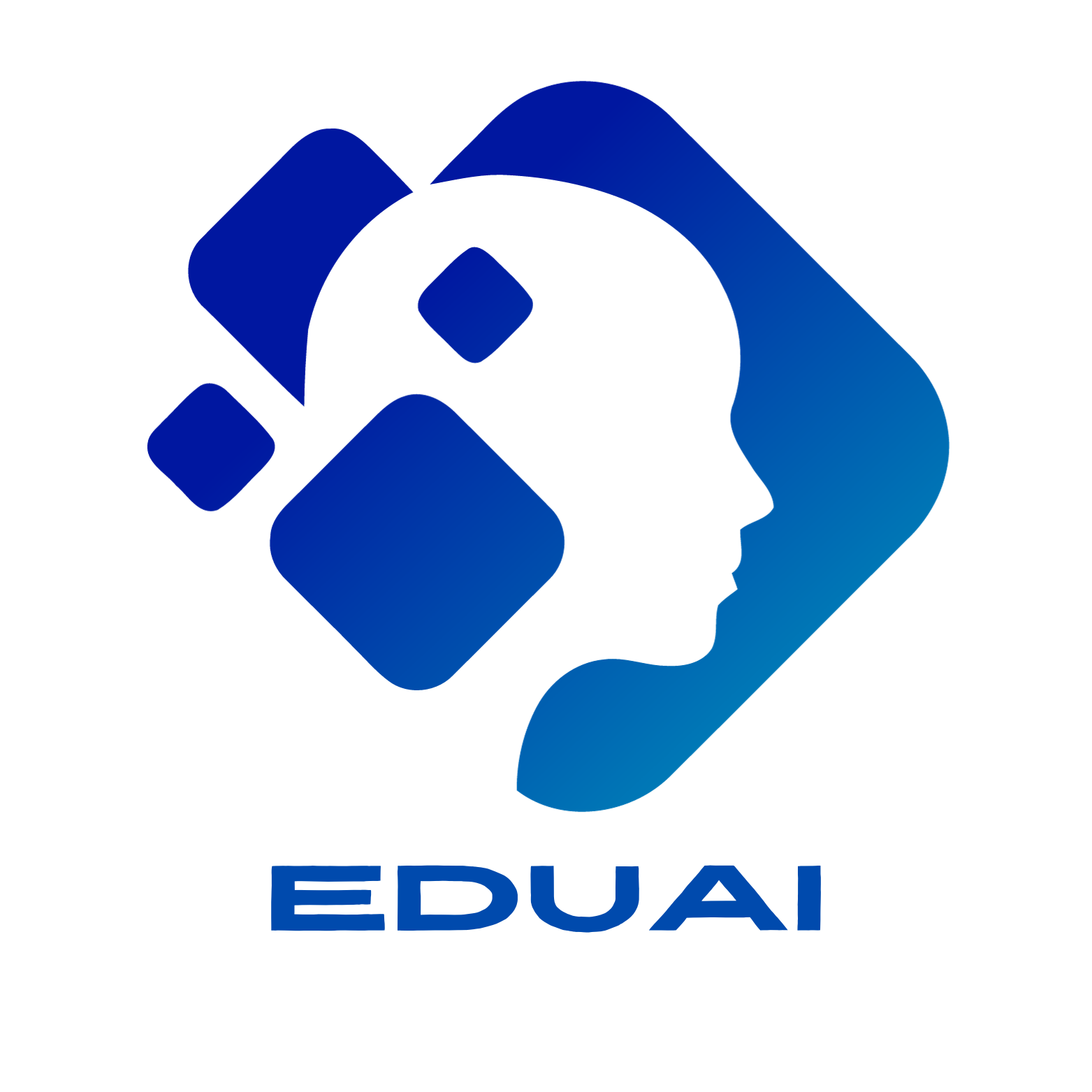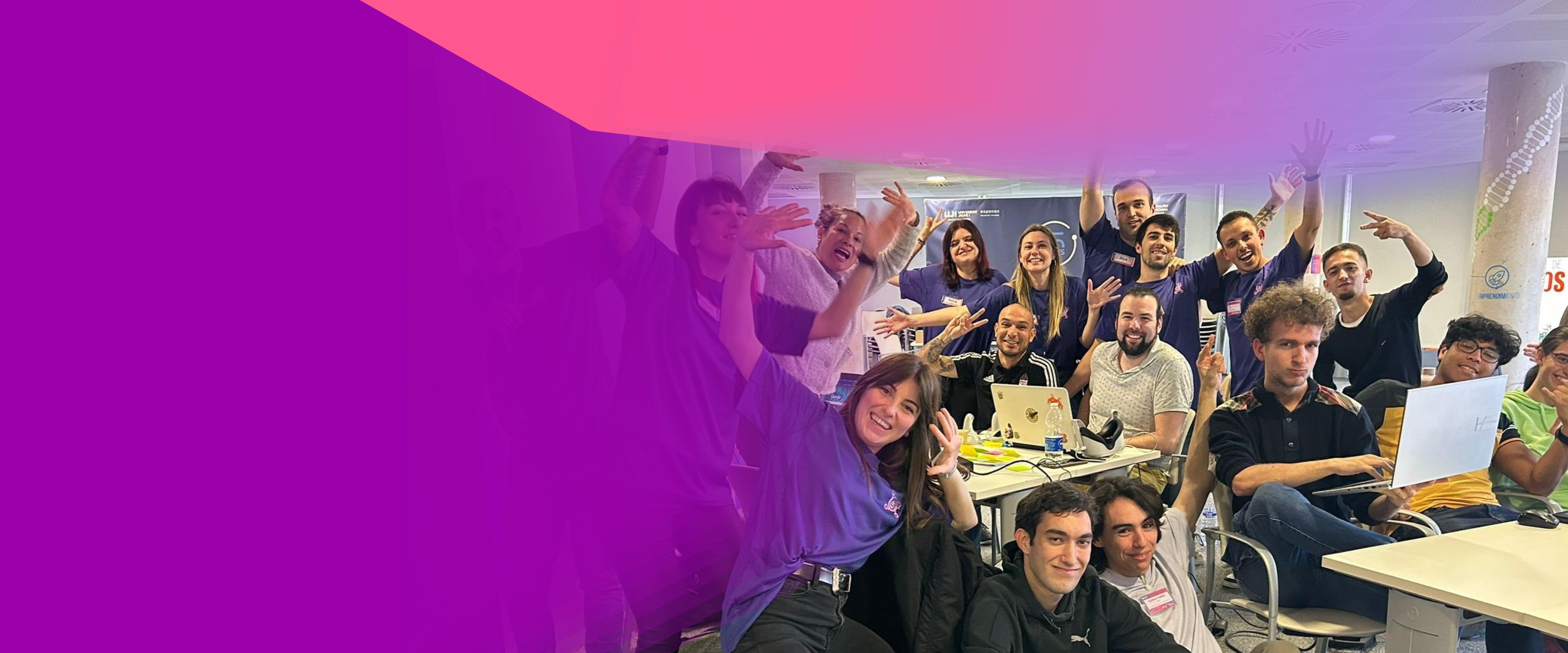LOCAL WINNER
Beginner Awards: Social impact
EduAI: To encourage the ethical use of AI critically and with integrity in an educational environment.
Solution summary
EduAI is an application that aims at promoting the ethical use of AI in education. It offers a program to educate both students and professional staff on the benefits of integrating AI into learning environments responsibly. Through a series of dynamic sessions covering topics from AI introduction to ethical considerations, participants gain hands-on experience and insights into the future of AI in academia.
EduAI's impact includes improved teaching methods, enhanced student learning outcomes, increased digital literacy, and a deeper understanding of ethical AI use. Through user engagement surveys, academic performance data, and assessments of teaching efficiency, the platform continuously evolves to meet educational goals while adhering to ethical principles.
EduAI focuses on nurturing creativity, resilience, collaboration, and critical thinking among students and educators. Beyond academia, its transferability extends to workplace education, secondary school modules, local policymaking, and business think tanks, facilitating discussions and solutions for diverse challenges.
Read the full description below.
Solution details
Our aim is to encourage the ethical use of AI critically and with integrity in an educational environment. We plan to educate both students and professional staff on the benefits of using Ai for learning and assesments. We want to reduce the stigma around the use of Ai and instead show how it can be used as a tool critically and with integrity. Specifically for educators, this application can also be used to create assessments, discussion, project ideas, prompts that incorporate ai but also require students to use their own knowledge of their local issues/ experience to find solutions.
Our plan includes a 6 step program to teach students and lecturers about the uses of Ai so it can then be implemented into the curriculum and utilised by the University: Session 1: Introduction to AI (for both students and teachers), Session 2: AI in Education, Session 3: Ethical Considerations & Challenges, Session 4: Hands-On AI Experience, Session 5: Future of AI in Academia, Session 6: Open Forum & Q&A.
Tweet / Slogan
Exploring the power of AI in education with a critical lens and unwavering integrity. Let's embrace technology responsibly, ensuring ethical use for a brighter educational future. #EthicalAI #EducationInnovation #AIinEducation#BringethicstoAi

Resources
Watch pitch video at: https://drive.google.com/file/d/1Xe1NpfKvz468ZRRyi0QvNAhO5cTkJzZk/view?usp=sharing
Context
EduAi faces the initial challenge of securing administrative approval for its sessions, another potential hurdle involves organizing sessions in different languages, contingent on the availability of international or Erasmus students which would require a persuasive case highlighting the educational benefits. Another obstacle is engaging individuals anxious about potential privacy breaches,Furthermore, creating dynamic and interactive sessions poses a unique challenge as EduAi is a pioneering initiative. To tackle this, innovative teaching methods such as workshops, real-world case studies, and demonstrations can be employed. Collaboration with AI and education experts enhances creativity, while participant feedback ensures continuous improvement for increased engagement.
Who Benefits?
Originally target focus was on students unfamiliar with academic integrity and ethical material use, our target audience for EduAi has expanded with the inclusion of lecturers, and professional staff (ISS, student Support). These groups often hold reservations about AI, fearing potential negative outcomes and, as a result, may hesitate to leverage the benefits AI offers in an educational setting. EduAi sessions aim to alleviate anxiety surrounding AI among students, lecturers, and professional staff. Moreover, they seek to empower students to employ AI critically and ethically for enhanced educational effectiveness. EduAi could also consider offering sessions in different languages to cater to international students and Erasmus participants. Implementing more individualized and personal sessions would enhance understanding.
Impact
The impact of the AI-enhanced education platform is multifaceted, focusing on improving teaching methods, enhancing student learning outcomes, increasing digital literacy, and fostering an understanding of ethical AI use. To measure this impact, a combination of user engagement surveys, academic performance data, and assessments of teaching efficiency and digital literacy are employed. Furthermore, understanding and adherence to ethical AI principles are evaluated through targeted surveys and policy monitoring. Regular feedback and iterative improvements ensure the platform remains effective and aligned with educational goals. Long-term, the platform aims to positively transform the university's approach to technology in education, creating a more engaging, efficient, and ethically conscious learning environment.
Team work
We are all college students, who have experience using ai, in everyday life, but also in our education. We all come from different backgrounds with different points of view on the topic. We've seen the benefits of ai in our education, such as reducing workloads, but also the issues, such as cheating on assignments. It's clear to us that educators are generally struggling to embrace and apply ai into assessments and projects effectively and efficiently.
Innovativeness
Our project is unique because, rather than providing shortcuts for education workloads or dismissing the benefits of Ai, we are encouraging and promoting student's and educators creativity, resilience, collaboration and critical thinking.
Transferability
Our solution can be applied to many areas, especially in the workplace. We could expand into educating professionals on how to use Ai to assist in their workload. We could also role it out for use in secondary schools (TY module/ 4th year - 6th year workshops). It could also be used for local policy makers/ ogra parties in Ireland for prompts to discuss and consider local issues and solutions. Also business think tanks may use the prompts to gain greater understanding of their problems and spark ideas for discussion.
Sustainability
Our Roadmap: Phase 1: Planning and Analysis (Months 1-2), Phase 2: Design & Development (Months 3-6), Phase 3: Testing & Pilot Implementation (Months 7-8), Phase 4: Training and Preparation (Months 9-10), Phase 5: Full-Scale Implementation (Month 11), Phase 6: Ongoing Support &Enhancement (Month 12 and Beyond).

